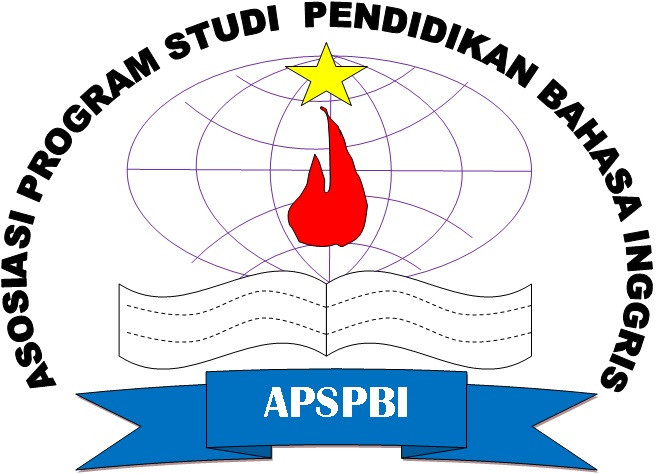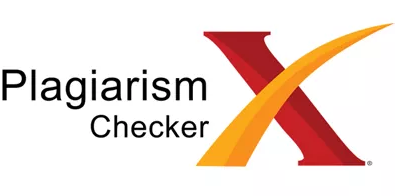Expert Validation and Students’ Initial Field Trial Responses toward M-Write Academic Essay Writing Application
Abstract
Proficiency in English academic writing is still a problem for many students. However, there are no such digital learning media that facilitates academic writing practices. Considering these problems, this research tried to develop an M-Write application, a learning media that combine metacognitive and process-genre writing exercises. This study aims to determine the feasibility level of M-Write as a website-based academic essay writing application. The method used in testing the feasibility of this product includes the alpha test and beta test. The alpha test was carried out by three English Education experts; each of them assessed the aspects of the content, language use, and design. While the beta test was carried out by 25 students of the Computer Science Faculty, UPN “Veteran” Jawa Timur. The data collection technique was done by using a questionnaire and interview. Data analysis was carried out using quantitative descriptive techniques. The results of this study indicate that the M-Write application reached appropriate criteria in terms of content, language use, and design aspects. The percentages of each of these aspects are 71.9%, 73.3%, and 71.9%. While the results of the applications usage assessment by students also showed that the application was appropriate to be used with an average percentage of 75.9%.
Keywords
Full Text:
PDFReferences
Åberg, E. S., Ståhle, Y., Engdahl, I., & Knutes-Nyqvist, H. (2016). Designing a Website to Support Students’ Academic Writing Process. Turkish Online Journal of Educational Technology - TOJET, 15(1), 33–42.
Aliweh, A. M. (2011). The effect of electronic portfolios on promoting Egyptian EFL college students’ writing competence and autonomy. Asian EFL Journal, 13(2), 90–132.
Anisa, I., & Widayanti, S. R. (2019). English Academic Writing for The Students of Widya Dharma University of Klaten. International Journal of Active Learning, 4(2), 154–158.
Arikunto, S. (2006). Prosedur penelitian suatu pendekatan praktik. Jakarta: Rineka Cipta.
Arikunto, S. (2010). Metode Penelitian. Jakarta: Rineka Cipta.
Badger, R., & White, G. (2000). A process genre approach to teaching writing. ELT Journal, 54(2), 153–160. https://doi.org/10.1093/elt/54.2.153
Bassett, M. H. (2016). Teaching Critical Thinking without (Much) Writing: Multiple-Choice and Metacognition. Teaching Theology & Religion, 19(1), 20–40. https://doi.org/10.1111/teth.12318
Bilal, H. A., Tariq, A. R., Din, N., Latif, H., & Anjum, M. N. (2013). Investigating the problems faced by the teachers in developing English writing skills. Asian Journal of Social Sciences and Humanities, 2(3), 238–244.
Chekwa, E., McFadden, M., Divine, A., & Dorius, T. (2015). Metacognition: Transforming the Learning Experience. Journal of Learning in Higher Education, 11(1), 109–112.
Dahlström, H. (2019). Digital writing tools from the student perspective. Education and Information Technologies, 24(2), 1563–1581. https://doi.org/10.1007/s10639-018-9844-x
Faraj, A. K. A. (2015). Scaffolding EFL Students’ Writing through the Writing Process Approach. Journal of Education and Practice, 6(13), 131–141.
Fatimah, N. (2018). Students’ Needs for Academic Writing at the English Education Department. English Language Teaching Educational Journal, 1(3), 161–175.
Flavell, J. H. (1979). Metacognition and cognitive monitoring: A new area of cognitive–developmental inquiry. American Psychologist, 34(10), 906–911. https://doi.org/10.1037/0003-066X.34.10.906
Handayani, F., & Handayani, N. D. (2020). The potential of online writing tools for efl university students during the covid-19 pandemic. JEE (Journal of English Education), 6(1), 9–9. https://doi.org/10.30606/jee.v6i1.406
Holmes, B., Waterbury, T., Baltrinic, E., & Davis, A. (2018). Angst about Academic Writing: Graduate Students at the Brink. Contemporary Issues in Education Research, 11(2), 65–70.
Jaleel, S., & Premachandran, P. (2016). A Study on the Metacognitive Awareness of Secondary School Students. Universal Journal of Educational Research, 4(1), 165–172.
Knox, H. (2017). Using Writing Strategies in Math to Increase Metacognitive Skills for the Gifted Learner. Gifted Child Today, 40(1), 43–47. https://doi.org/10.1177/1076217516675904
Kwak, S. (2017). Approaches Reflected in Academic Writing MOOCs. International Review of Research in Open and Distributed Learning, 18(3), 138–155.
McWhorter, K. T. (2006). Seeing the Pattern—Readings for Successful Writing. Boston: Bedford/St. Martin’s.
Moloudi, M. (2011). Online and face-to-face peer review: Measures of implementation in ESL writing classes. Asian EFL Journal, 52, 4–22.
Negretti, R. (2012). Metacognition in Student Academic Writing: A Longitudinal Study of Metacognitive Awareness and Its Relation to Task Perception, Self-Regulation, and Evaluation of Performance. Written Communication, 29(2), 142–179. https://doi.org/10.1177/0741088312438529
Negretti, R., & Kuteeva, M. (2011). Fostering Metacognitive Genre Awareness in L2 Academic Reading and Writing: A Case Study of Pre-Service English Teachers. Journal of Second Language Writing, 20(2), 95–110. https://doi.org/10.1016/j.jslw.2011.02.002
Oshima, A., & Hogue, A. (1994). Writing Academic English (4th ed., Vol. 37). New York: Longman.
Rakedzon, T., & Baram-Tsabari, A. (2017). Assessing and Improving L2 Graduate Students’ Popular Science and Academic Writing in an Academic Writing Course. Educational Psychology, 37(1), 48–66. https://doi.org/10.1080/01443410.2016.1192108
Ratnawati, R., Faridah, D., Anam, S., & Retnaningdyah, P. (2018). Exploring Academic Writing Needs of Indonesian EFL Undergraduate Students (SSRN Scholarly Paper ID 3308318). Social Science Research Network. https://doi.org/10.2139/ssrn.3308318
Strobl, C., Ailhaud, E., Benetos, K., Devitt, A., Kruse, O., Proske, A., & Rapp, C. (2019). Digital support for academic writing: A review of technologies and pedagogies. Computers & Education, 131, 33–48. https://doi.org/10.1016/j.compedu.2018.12.005
Sumarno, W. K. (2015). The Effectiveness of Process Genre and Product Genre Approaches to Teach Writing to Introvert and Extrovert Students (The Case of the Tenth Year Students of State Senior High School 1 Wirosari-Grobogan in the Academic Year of 2013/2014). JELE (Journal of English Language and Education), 1(1), 93–107.
Sumarno, W. K. (2019). Effects of Edmodo-Assisted Process Writing with the Problematized Scaffolding on the Quality of Students’ Writing. Lingua Cultura, 13(1), 31–37. https://doi.org/10.21512/lc.v13i1.5028
Sumarno, W. K., Tatik, T., & Shodikin, A. (2017). Constructivist-Webquests: A TEFL Course Teaching Media in Digital Environment. UNNES International Conference on ELTLT (English Language Teaching, Literature, and Translation), 6(1), 542–545.
Tangpermpoon, T. (2008). Integrated Approaches to Improve Students Writing Skills for English Major Students. ABAC Journal, 28(2). http://www.assumptionjournal.au.edu/index.php/abacjournal/article/view/539
Thiagarajan, S., Semmel, D., & Semmel, M. (1974). Instructional development for training teachers of exceptional children. Bloomington: Indiana University. Center for Innovation in Teaching the Handicapped.
VanKooten, C. (2016). Identifying Components of Meta-Awareness about Composition: Toward a Theory and Methodology for Writing Studies. Composition Forum, 33. Association of Teachers of Advanced Composition https://eric.ed.gov/?q=Identifying+Components+of+Meta-Awareness+about+Composition%3a+Toward+a+Theory+and+Methodology+for+Writing+Studies&id=EJ1092005
Yan, G. (2005). A process genre model for teaching writing. English Teaching Forum, 43, 18–26.
Yoon, H. (2008). More than a linguistic reference: The influence of corpus technology on L2 academic writing. Language Learning & Technology, 12(2), 89–96.
Zhang, Y. (2018). Exploring EFL Learners’ Self-Efficacy in Academic Writing Based on Process-Genre Approach. English Language Teaching, 11(6), 115–124.
DOI: https://doi.org/10.31002/metathesis.v5i2.4375
Refbacks
- There are currently no refbacks.

This work is licensed under a Creative Commons Attribution-ShareAlike 4.0 International License.
Metathesis: Journal of English Language, Literature, and Teaching is published by English Education Department, Faculty of Teacher Training and Education, Universitas Tidar, Magelang, Indonesia in collaboration with Asosiasi Program Studi Pendidikan Bahasa Inggris Se-Indonesia (APSPBI)
ISSN: 2580-2712 (print) and 2580-2720 (online)
Jalan Kapten Suparman 39 Magelang, Jawa Tengah, Indonesia 56116
Phone (0293) 364113 Fax (0293) 362438













